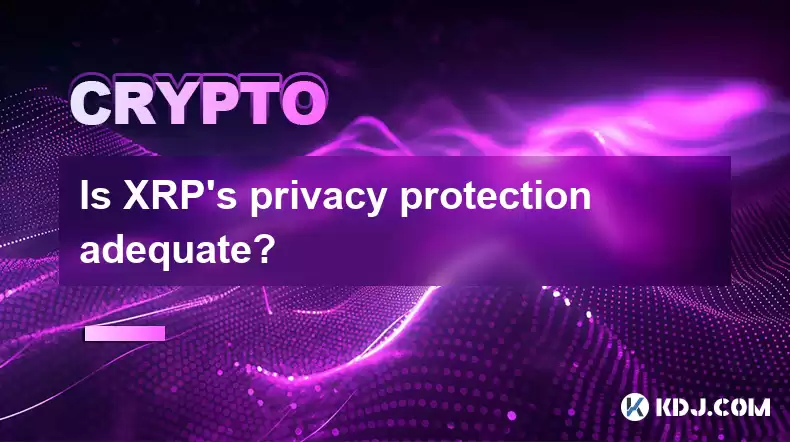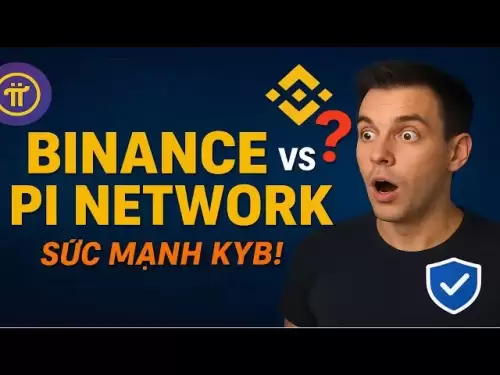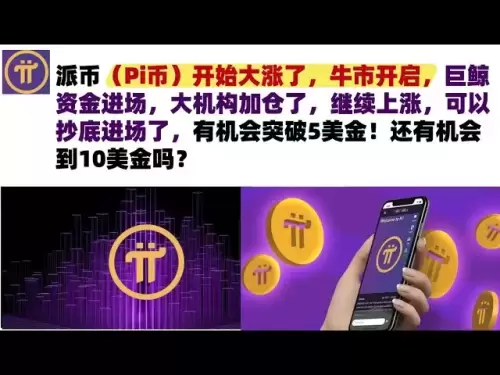-
 Bitcoin
Bitcoin $116400
-0.36% -
 Ethereum
Ethereum $4033
3.40% -
 XRP
XRP $3.302
-1.26% -
 Tether USDt
Tether USDt $1.000
-0.02% -
 BNB
BNB $796.1
1.67% -
 Solana
Solana $177.8
1.89% -
 USDC
USDC $0.9999
0.00% -
 Dogecoin
Dogecoin $0.2314
4.09% -
 TRON
TRON $0.3381
0.14% -
 Cardano
Cardano $0.7989
1.22% -
 Stellar
Stellar $0.4496
-1.84% -
 Chainlink
Chainlink $20.42
9.42% -
 Hyperliquid
Hyperliquid $41.17
0.88% -
 Sui
Sui $3.914
3.77% -
 Bitcoin Cash
Bitcoin Cash $584.7
1.52% -
 Hedera
Hedera $0.2632
-0.54% -
 Avalanche
Avalanche $24.09
3.40% -
 Ethena USDe
Ethena USDe $1.001
-0.02% -
 Litecoin
Litecoin $123.2
1.33% -
 Toncoin
Toncoin $3.318
-0.04% -
 UNUS SED LEO
UNUS SED LEO $8.984
-0.05% -
 Shiba Inu
Shiba Inu $0.00001323
2.85% -
 Uniswap
Uniswap $10.90
4.41% -
 Polkadot
Polkadot $3.999
3.34% -
 Dai
Dai $1.000
0.01% -
 Cronos
Cronos $0.1630
9.64% -
 Bitget Token
Bitget Token $4.484
0.82% -
 Monero
Monero $272.4
2.44% -
 Pepe
Pepe $0.00001173
6.03% -
 Aave
Aave $290.8
2.88%
Is XRP's privacy protection adequate?
XRP's public ledger, while pseudonymous, offers weak privacy compared to other cryptos; transaction linking to real identities is feasible, despite efforts to enhance privacy. Regulatory scrutiny and the ledger's nature further limit its anonymity.
Mar 04, 2025 at 09:48 am

Key Points:
- XRP's privacy is significantly weaker than many other cryptocurrencies due to its reliance on a public ledger.
- While transactions are pseudonymous, linking transactions to real-world identities is relatively straightforward.
- Several techniques can enhance XRP's privacy, but none offer complete anonymity.
- Regulatory scrutiny and the nature of the XRP ledger itself present inherent limitations to privacy.
- Ongoing developments in privacy-enhancing technologies may offer future improvements to XRP's privacy features.
Is XRP's Privacy Protection Adequate? A Deep Dive
XRP, Ripple's native cryptocurrency, operates on a public ledger, meaning all transactions are recorded and viewable by anyone. This inherent transparency contrasts sharply with cryptocurrencies designed with strong privacy features. While individual identities are not explicitly revealed, the pseudonymous nature of XRP transactions allows for potential linking to real-world entities through various investigative methods. This raises crucial questions about the adequacy of its privacy protection.
The core issue lies in the traceability of XRP transactions. Although users aren't required to provide personally identifiable information (PII) when transacting, blockchain analysis firms can utilize sophisticated techniques to link addresses to individuals or entities. This includes analyzing transaction patterns, correlating addresses with known exchanges, and leveraging other publicly available data.
The open nature of the XRP Ledger makes it vulnerable to this type of analysis. Unlike cryptocurrencies employing advanced privacy protocols like zero-knowledge proofs or ring signatures, XRP lacks built-in mechanisms to obfuscate the sender and receiver identities effectively. This directly impacts the level of privacy users can expect when utilizing the network.
Several strategies can be employed to improve privacy when using XRP, though none provide complete anonymity. These include using multiple wallets to break transaction chains, employing mixing services (although these come with their own risks), and limiting the amount of personally identifiable information linked to XRP addresses.
- Use multiple wallets: Distributing your XRP across various wallets makes it harder to track the movement of funds.
- Utilize mixers (with caution): These services shuffle XRP between multiple users, obscuring the origin and destination of transactions. However, be aware of potential risks associated with these services.
- Minimize personally identifiable information: Avoid linking your real-world identity to your XRP addresses as much as possible.
However, even with these strategies, complete anonymity remains elusive. The fundamental architecture of the XRP Ledger and the ever-increasing sophistication of blockchain analytics tools pose significant hurdles to achieving truly private transactions.
Furthermore, regulatory scrutiny adds another layer of complexity to the privacy debate surrounding XRP. Governments and regulatory bodies globally are increasingly focusing on cryptocurrency transactions, potentially requiring exchanges and other service providers to maintain comprehensive records of user activity. This directly impacts the privacy afforded by the cryptocurrency itself.
The decentralized nature of XRP, often cited as a positive, is also a double-edged sword in terms of privacy. While decentralization reduces the risk of a single point of failure, it also makes it harder to implement robust privacy-enhancing technologies without significant changes to the core protocol.
Ongoing advancements in privacy-enhancing technologies could potentially offer future solutions. The incorporation of more sophisticated cryptographic techniques into the XRP protocol could improve the level of privacy offered, although such modifications would require significant community consensus and development efforts. Until then, users should be mindful of the inherent limitations of XRP's privacy features.
Frequently Asked Questions:
Q: Is XRP completely anonymous?
A: No, XRP is not anonymous. Transactions are pseudonymous, meaning they don't directly reveal user identities, but sophisticated analysis can link transactions to individuals or entities.
Q: How can I improve my privacy when using XRP?
A: Employing multiple wallets, utilizing mixing services (with caution), and avoiding direct links between your identity and your XRP addresses can enhance privacy, but complete anonymity remains difficult to achieve.
Q: Is the XRP Ledger transparent?
A: Yes, the XRP Ledger is a public and transparent blockchain. All transactions are recorded and accessible to anyone.
Q: What are the risks associated with using mixing services for XRP?
A: Mixing services can be risky. Some are scams, while others may be targets for law enforcement investigation. Using them can potentially expose users to legal and financial risks.
Q: Could future upgrades improve XRP's privacy?
A: Potentially. The implementation of advanced cryptographic techniques could improve privacy in the future, but such changes require significant community support and development efforts.
Q: How does regulatory scrutiny affect XRP's privacy?
A: Regulatory requirements may force exchanges and other service providers to collect and retain user data, thereby reducing the effective privacy afforded by XRP.
Disclaimer:info@kdj.com
The information provided is not trading advice. kdj.com does not assume any responsibility for any investments made based on the information provided in this article. Cryptocurrencies are highly volatile and it is highly recommended that you invest with caution after thorough research!
If you believe that the content used on this website infringes your copyright, please contact us immediately (info@kdj.com) and we will delete it promptly.
- Shiba Inu (SHIB) in the Crypto Landscape: Community, Trends, and Future Outlook
- 2025-08-09 20:30:12
- Lasers in Modern Warfare: Iron Beam and the Future of Defense
- 2025-08-09 20:30:12
- Maxi Doge Presale: The Meme Coin That's Pumping Iron and Prices!
- 2025-08-09 19:10:11
- Rare Coin Warning: Don't Get Fooled by That 1p Coin!
- 2025-08-09 18:50:12
- Cardano, Unilabs, and Tron Price: Decoding the Latest Crypto Buzz
- 2025-08-09 18:30:12
- Aerodrome Finance: Price Targets and the Bullish Channel - What's Next?
- 2025-08-09 18:50:12
Related knowledge

Where can I buy UMA (UMA)?
Aug 07,2025 at 06:42pm
Understanding UMA and Its Role in Decentralized FinanceUMA (Universal Market Access) is an Ethereum-based decentralized finance (DeFi) protocol design...

How to buy Storj (STORJ) tokens?
Aug 09,2025 at 07:28am
Understanding Storj (STORJ) and Its Role in Decentralized StorageStorj is a decentralized cloud storage platform that leverages blockchain technology ...

What is the best app to buy Nano (NANO)?
Aug 09,2025 at 03:35am
Understanding Nano (NANO) and Its Unique FeaturesNano is a feeless, instant cryptocurrency designed for fast peer-to-peer transactions. Unlike many ot...

Where can I purchase Siacoin (SC)?
Aug 08,2025 at 11:14am
Understanding Siacoin (SC) and Its Role in the Sia NetworkSiacoin (SC) is the native cryptocurrency of the Sia decentralized cloud storage platform, a...

How to sell my Ontology (ONT) tokens?
Aug 09,2025 at 06:08pm
Understanding Ontology (ONT) and Its Trading EcosystemBefore selling your Ontology (ONT) tokens, it's essential to understand the nature of the crypto...

Where can I buy OMG Network (OMG)?
Aug 08,2025 at 12:57pm
Understanding OMG Network (OMG) and Its PurposeThe OMG Network, originally known as OmiseGO, is a layer-2 scaling solution built on the Ethereum block...

Where can I buy UMA (UMA)?
Aug 07,2025 at 06:42pm
Understanding UMA and Its Role in Decentralized FinanceUMA (Universal Market Access) is an Ethereum-based decentralized finance (DeFi) protocol design...

How to buy Storj (STORJ) tokens?
Aug 09,2025 at 07:28am
Understanding Storj (STORJ) and Its Role in Decentralized StorageStorj is a decentralized cloud storage platform that leverages blockchain technology ...

What is the best app to buy Nano (NANO)?
Aug 09,2025 at 03:35am
Understanding Nano (NANO) and Its Unique FeaturesNano is a feeless, instant cryptocurrency designed for fast peer-to-peer transactions. Unlike many ot...

Where can I purchase Siacoin (SC)?
Aug 08,2025 at 11:14am
Understanding Siacoin (SC) and Its Role in the Sia NetworkSiacoin (SC) is the native cryptocurrency of the Sia decentralized cloud storage platform, a...

How to sell my Ontology (ONT) tokens?
Aug 09,2025 at 06:08pm
Understanding Ontology (ONT) and Its Trading EcosystemBefore selling your Ontology (ONT) tokens, it's essential to understand the nature of the crypto...

Where can I buy OMG Network (OMG)?
Aug 08,2025 at 12:57pm
Understanding OMG Network (OMG) and Its PurposeThe OMG Network, originally known as OmiseGO, is a layer-2 scaling solution built on the Ethereum block...
See all articles

























































































